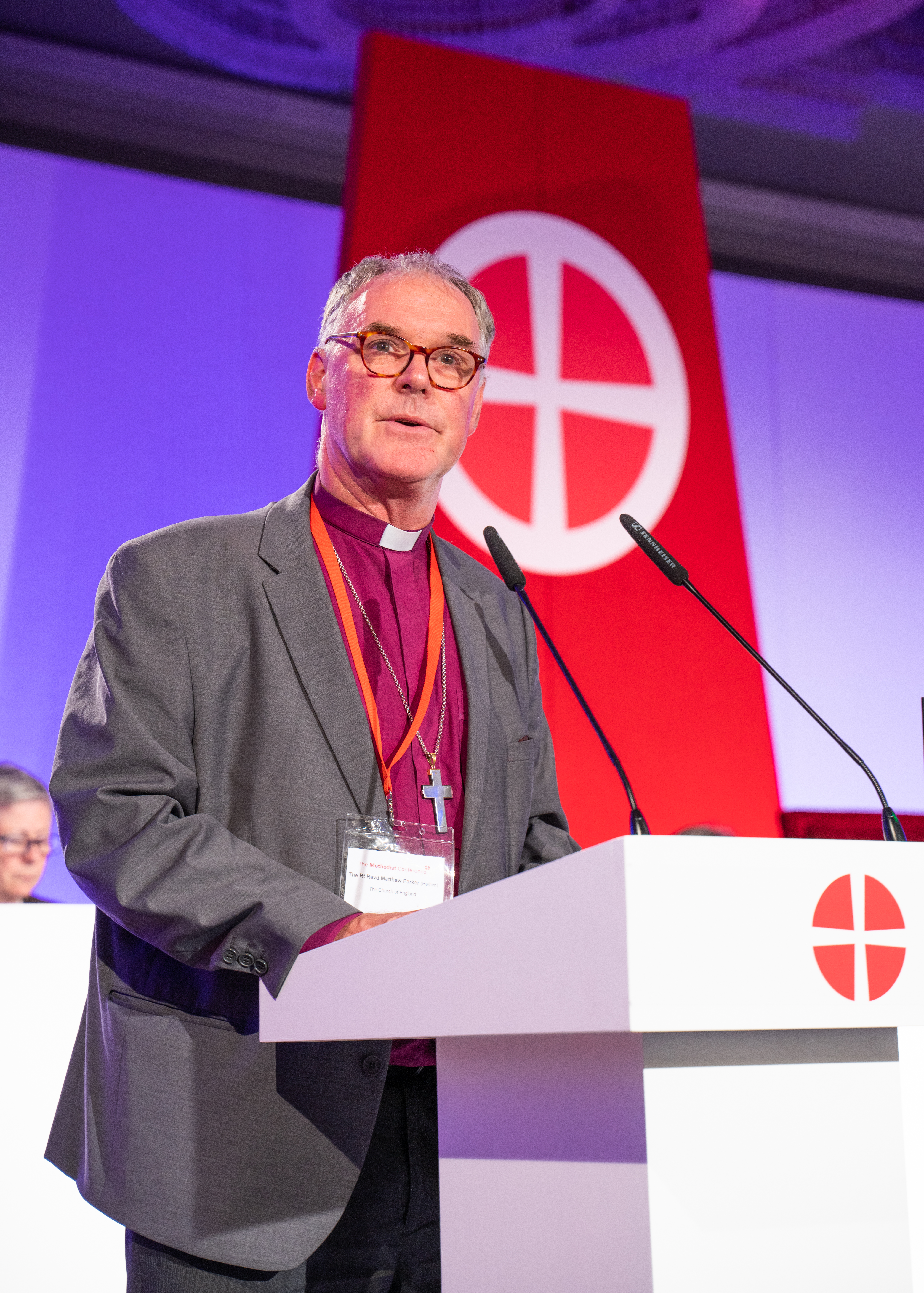 I write this blog whilst at the Methodist Conference, held this year in Birmingham. I am here because I am the 'lead bishop' for the Church of England’s relations with the Methodist Church. I have a personal interest as someone who was baptised in a Methodist church and whose family, on my father’s side, were committed Methodists. Like many, I am a great admirer of the Wesley brothers’ warm and generous passion for the gospel.
I write this blog whilst at the Methodist Conference, held this year in Birmingham. I am here because I am the 'lead bishop' for the Church of England’s relations with the Methodist Church. I have a personal interest as someone who was baptised in a Methodist church and whose family, on my father’s side, were committed Methodists. Like many, I am a great admirer of the Wesley brothers’ warm and generous passion for the gospel.
The Conference is the body that sets policy for the Methodist church. In many ways it is like the General Synod of the Church of England. Indeed, the similarities are marked and many of the issues discussed are common to both our churches, as are the challenges and opportunities.
Significant theological and practical differences remain but there is a great deal more that unites us than divides us as churches. This is the experience of many 'on the ground' in parishes, chapels, circuits and deaneries where Anglicans and Methodists work closely together, not least since the establishment of Anglican-Methodist Covenant in 2003.
And what is true of relations between Anglicans and Methodists is true of our relationships with other churches. As Christians of different denominations, we have come a long way from the days of suspicion and competition. We recognise one another as brothers and sisters in Christ. There are good relationships and active local groups of Christians of all traditions meeting and praying together. We have found ways of working together in mission through joint projects such as food banks, Passion plays (such as those held this year in Stafford and Leek) and Street Pastors.
And yet… We still must hear the challenge of Jesus’ own prayer to the Father for his church on the night before his crucifixion: “I pray also for those who will believe in me through their message, that all of them may be one, Father, just as you are in me and I am in you.” Unity amongst all God’s people is no optional 'nice to have'. It appears to be fundamental, reflecting the very nature and character of God and God’s purposes for the world. The continuing divisions within Christ’s church are a scandal, a stumbling block. We are to be one, says Jesus “so that the world may believe that you have sent me.” We must be one so that the world will believe. The corollary of that being if we are not one the world will not believe. We rejoice at how far we have come but know there is much still to do.
We commit ourselves to working where we can, when we can, with sisters and brothers from other denominations, not as some add-on to the rest of our work as a churches but in obedience to Jesus’ desire that all those who have heard the message and believe may be one so that the world may believe.